Easy Alphabet worksheets activities for Ages 3-8
6 filtered results
-
From - To
Welcome to our Easy Alphabet Worksheets and Activities for Ages 3-8! Designed specifically for young learners, our engaging resources foster essential literacy skills through fun and interactive exercises. Explore a variety of worksheets that focus on letter recognition, sound matching, and tracing, making learning the alphabet enjoyable and effective. Each activity is crafted to enhance fine motor skills and promote critical thinking. Perfect for parents and educators alike, these worksheets are easily downloadable and provide endless opportunities for practice at home or in the classroom. Start your child’s alphabetical adventure today and watch their confidence soar!
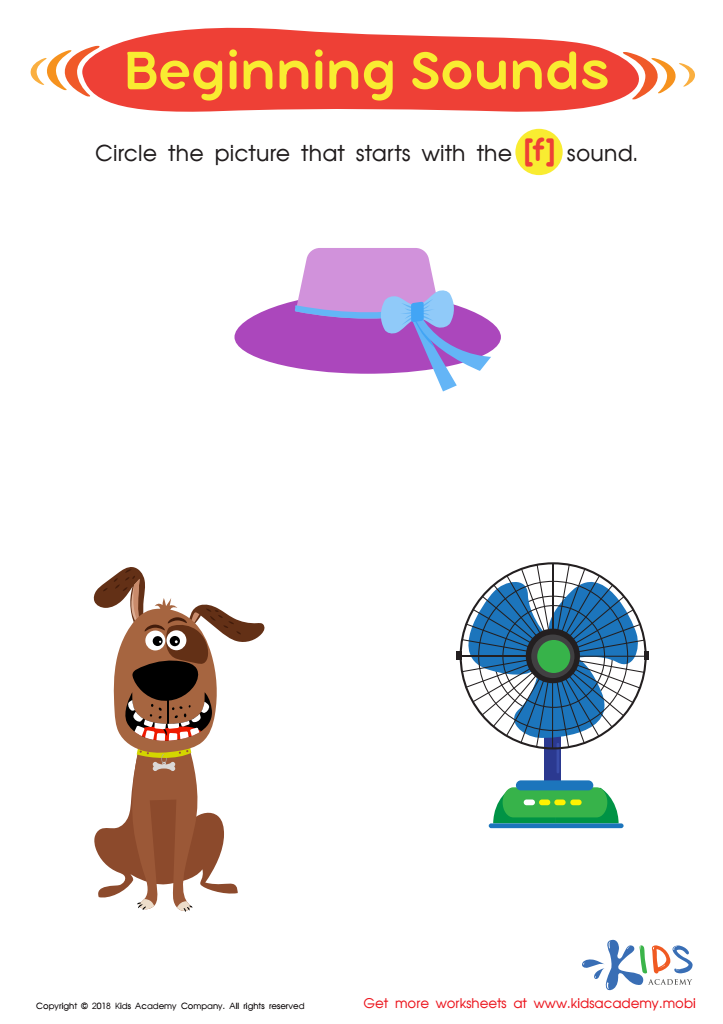

Beginning Sounds Assessment Printable
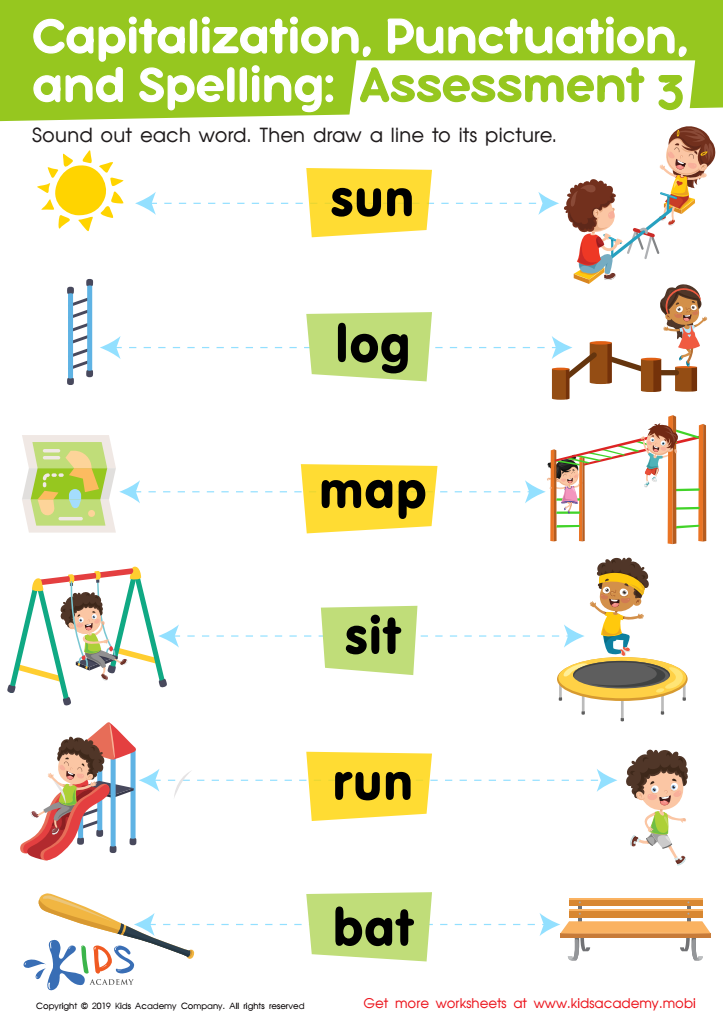

Capitalization. Punctuation. Spelling. Assessment 3 Worksheet
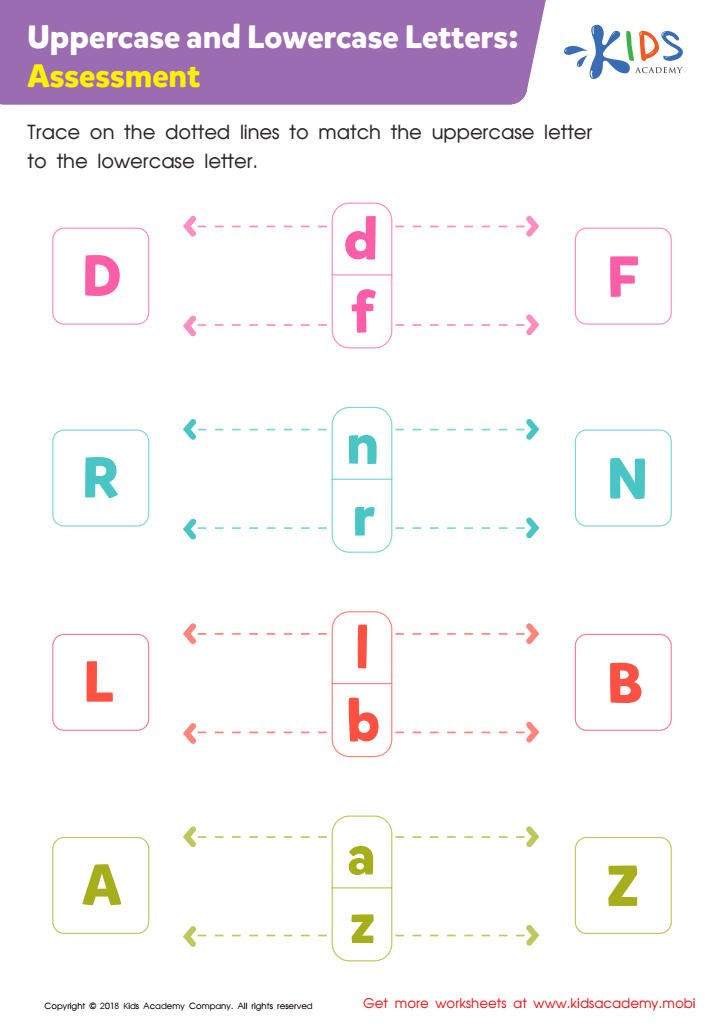

Uppercase and Lowercase Letters: Assessment Worksheet
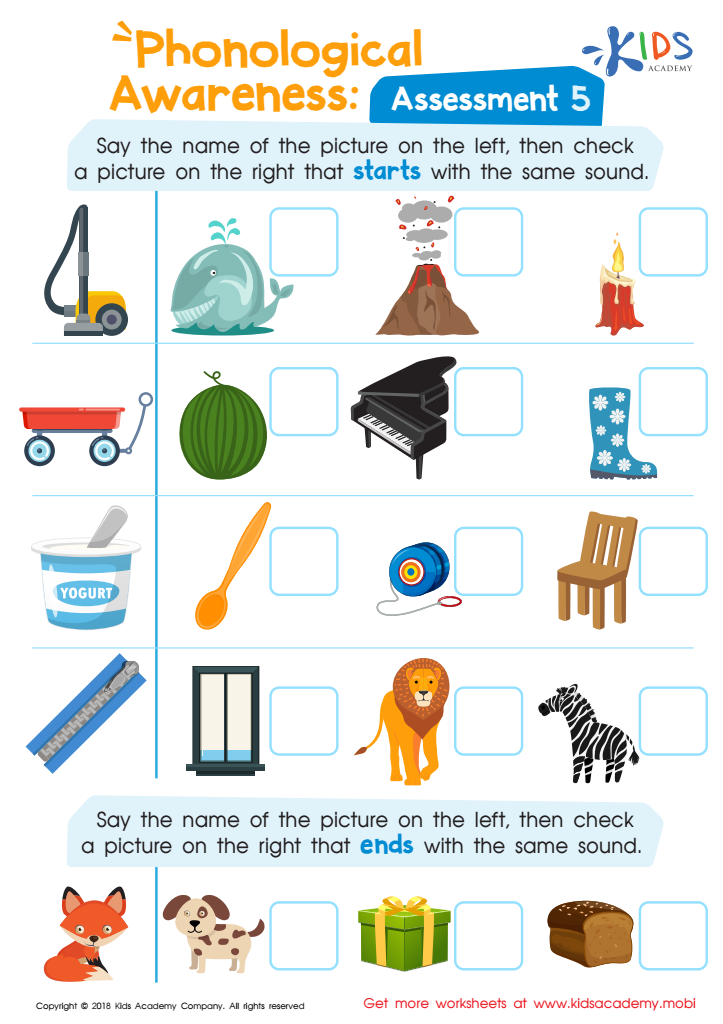

Phonological Awareness: Assessment 5 Worksheet


Phonics and Word Recognition: Assessment 1 Worksheet
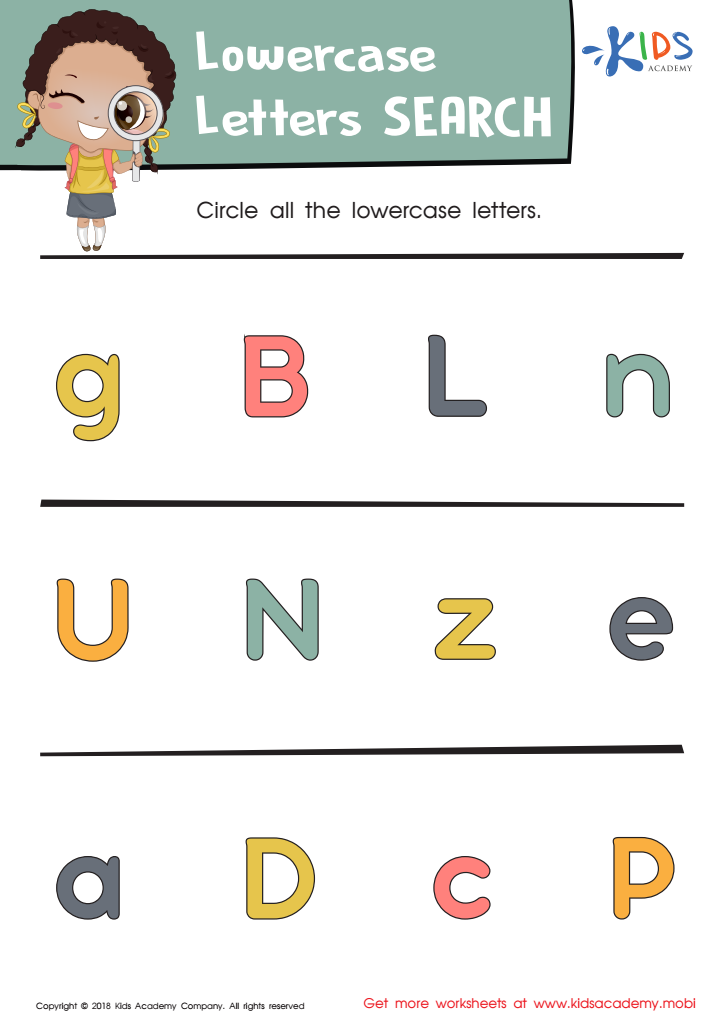

Lowercase Letters Search: Assessment Worksheet
Parents and teachers should prioritize Easy Alphabet activities for children aged 3-8 because they are crucial for developing foundational literacy skills. Engaging in these activities facilitates letter recognition, phonemic awareness, and vocabulary acquisition, forming the bedrock for reading and writing. Early literacy experiences during this age can significantly enhance a child's confidence and interest in learning, making subsequent educational tasks less daunting.
Easy Alphabet activities are inherently adaptable, allowing for tailoring to each child's unique learning pace and style. They often incorporate play and creativity—making learning enjoyable and interactive, which is vital at this age, where attention spans can be short. Moreover, these activities can foster critical thinking and fine motor skills, as children engage in sorting, tracing, and crafting letters.
Incorporating Easy Alphabet activities into daily routines can also strengthen the bond between parents and children or foster collaborative learning environments within classrooms. By taking these steps, parents and teachers signal the importance of literacy, thereby shaping a child’s educational journey positively. Ultimately, focusing on early literacy not only enhances academic readiness but also prepares children for lifelong learning and communication skills essential for future success.
 Assign to My Students
Assign to My Students















